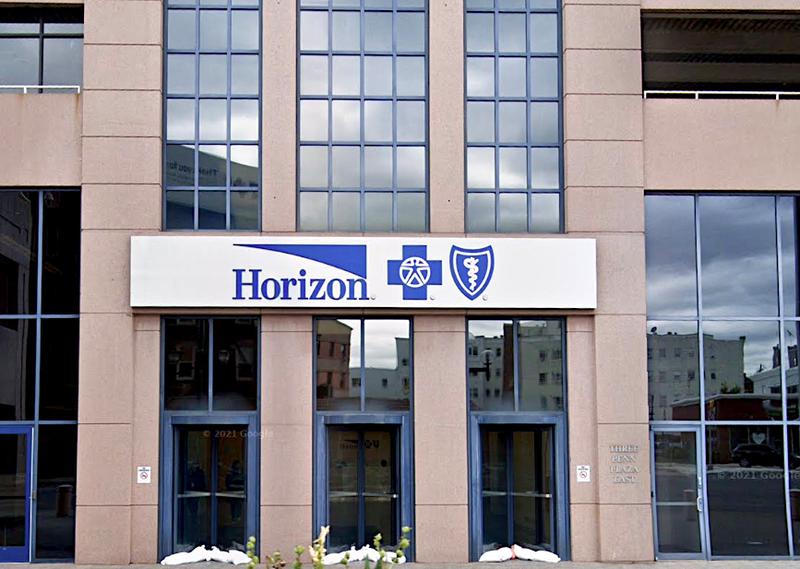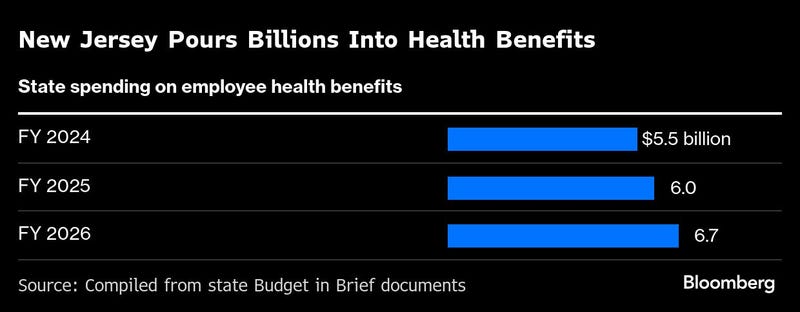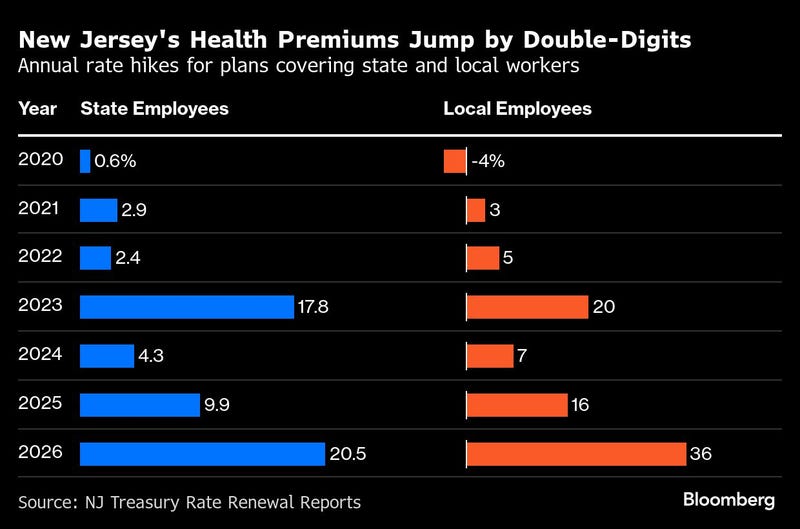
NEW YORK (BLOOMBERG) -- Horizon Blue Cross Blue Shield of New Jersey agreed to pay $100 million to resolve allegations that the health-insurance company had ripped off taxpayers by overpaying for care, in a pact made public on Friday.
The settlement with New Jersey Attorney General Matthew Platkin brings to an end a lawsuit against Horizon initiated by several whistleblowers. Rising expenses in the state employee health plan had been pushing up costs for taxpayers for years.
The state entrusted Horizon to provide benefits for hundreds of thousands of workers. But a yearslong investigation “revealed that Horizon betrayed that trust and took advantage of the state,” Platkin said at a news conference in Newark on Friday.
Platkin called the Horizon pact the single largest False Claims Act settlement in New Jersey state history, outside of Medicaid.
A former state official had raised alarms several years ago about how Horizon was handling a state contract to administer billions of dollars in payments to hospitals and doctors. Horizon is New Jersey’s largest health insurer, covering about 3.7 million people.
The official, Christin Deacon, filed a whistleblower lawsuit along with others seeking to recover money from Horizon on behalf of New Jersey. The case remained under seal before the resolution was disclosed in court filings on Friday.
Horizon denied that it engaged in fraud as part of the settlement. The company accused Platkin of “mischaracterizing and distorting facts to falsely allege intentional wrongdoing where none exists,” in a statement from spokesperson Thomas Wilson.
The company called the investigation a waste of time and taxpayer money for what it said was a contract dispute that it had offered to resolve.
People involved in bringing the matter to light described it as an important step to bring transparency and accountability to health care spending.
“Stepping forward as a whistleblower in this case was not a choice so much as an obligation to the people of New Jersey,” Deacon said in a statement.

Deacon was a top official overseeing the state’s health benefits program when her department began looking into potential violations of the contract. After Deacon left the department in 2021, the state continued to investigate, and she and other whistleblowers filed a complaint under seal. That complaint hasn’t been made public.
The allegations described “a multi-year scheme by Horizon to take New Jersey taxpayer money from State employee and school health benefit plans,” Jon Corey, an attorney at McKool Smith who represented the whistleblowers, said in a statement.
Overpayments
Bloomberg News first reported details of the state’s dispute with Horizon in a series of stories in 2022. The reports showed how New Jersey’s health program for public employees sometimes paid hundreds of thousands of dollars more for medical care than what providers charged.
In one instance, the state paid more than $2 million for a hospital stay that was billed at $674,856.
The state’s case against Horizon centered on such payments, court documents unsealed Friday show.
Horizon signed a state contract in 2020 that prohibited paying more for care than providers charged, but the company didn’t adhere to those terms, the state’s complaint said. “Because of Horizon’s misconduct, Horizon unjustly enriched itself of nearly half-a-billion dollars,” according to the complaint, referring to the fees the company collected for administering the plan.
Horizon submitted more than a thousand false claims for payment, according to the complaint. The insurer made payments to at least three New Jersey hospital systems in excess of billed charges for years, violating the contract and costing the state millions, the complaint said.
The company also sent fraudulent paperwork to plan members misrepresenting how much the state paid for their care, the state alleged.
Deacon, in her statement, said while the resolution “may not fully reflect the scale of the conduct at issue or the financial impact on the State, local employers, and members, I am encouraged that this process has produced some measure of accountability.”
Platkin said the recovery would go back to the state’s health plans and that the amount was “substantially” more than the excess payments.
Horizon has agreed to stop making payments that are higher than hospitals’ charges as part of the resolution, according to the attorney general’s office.
Wilson, the company spokesman, said the settlement involves 0.46% of the total amount paid to providers under the contract.
“Horizon paid claims we processed for the State according to the contracts in place with the doctors and hospitals filing those claims,” Wilson said in the statement.
The settlement sheds new light on insurance-industry practices that drive up costs for employers. New Jersey’s state benefits plan for public workers and retirees has seen costs tilt steeply higher, with premiums set to rise by more than 20% next year. That money is funded from tax revenue and contributions from state employees and retirees.
It’s a problem mirrored in the private sector, where rising care expenses are a top concern for big companies that fund their own health plans. Some employers have accused health insurance conglomerates of mismanaging their health plans and blocking access to data they would need to verify that payments made on their behalf are valid.
Employers also face their own legal risks over opaque transactions that may inflate costs for their workers. A series of lawsuits brought by employees has accused companies including Johnson & Johnson, Wells Fargo & Co. and JPMorgan Chase & Co. of wasting workers’ money by paying too much for prescription drugs. The companies have moved to dismiss the lawsuits, which are pending.

New Jersey’s health-benefits expenses are higher than average. The state offers relatively generous benefits and medical costs have been going up across the board nationally.
Family coverage for local government employees will cost as much as $67,730 next year, according to projections from the state’s actuaries. That’s more than twice as much as private employers typically pay, according to a survey from health researcher KFF.
Despite the dispute, New Jersey extended its contract with the insurer in 2023 and later awarded it a fresh contract to keep running the state health plan.
Platkin said the settlement should send a message to others doing business with the state.
“It doesn’t matter how large you are, how powerful you are, how well connected you are. If you defraud the state, if you misuse taxpayer money, we will come after you,” he said.
In addition to Deacon, three retired New Jersey police detectives and two consultants with a benefits firm called AVYM also helped to bring the Horizon matter to light.
Whistleblowers are entitled to share in settlement recoveries, and in the deal announced Friday, they are set to receive $12 million.
However, Deacon won’t get a share of those funds, according to Platkin’s office, as she “had become aware of the fraudulent conduct by Horizon during the course of her duties.”
More stories like this are available on bloomberg.com.
